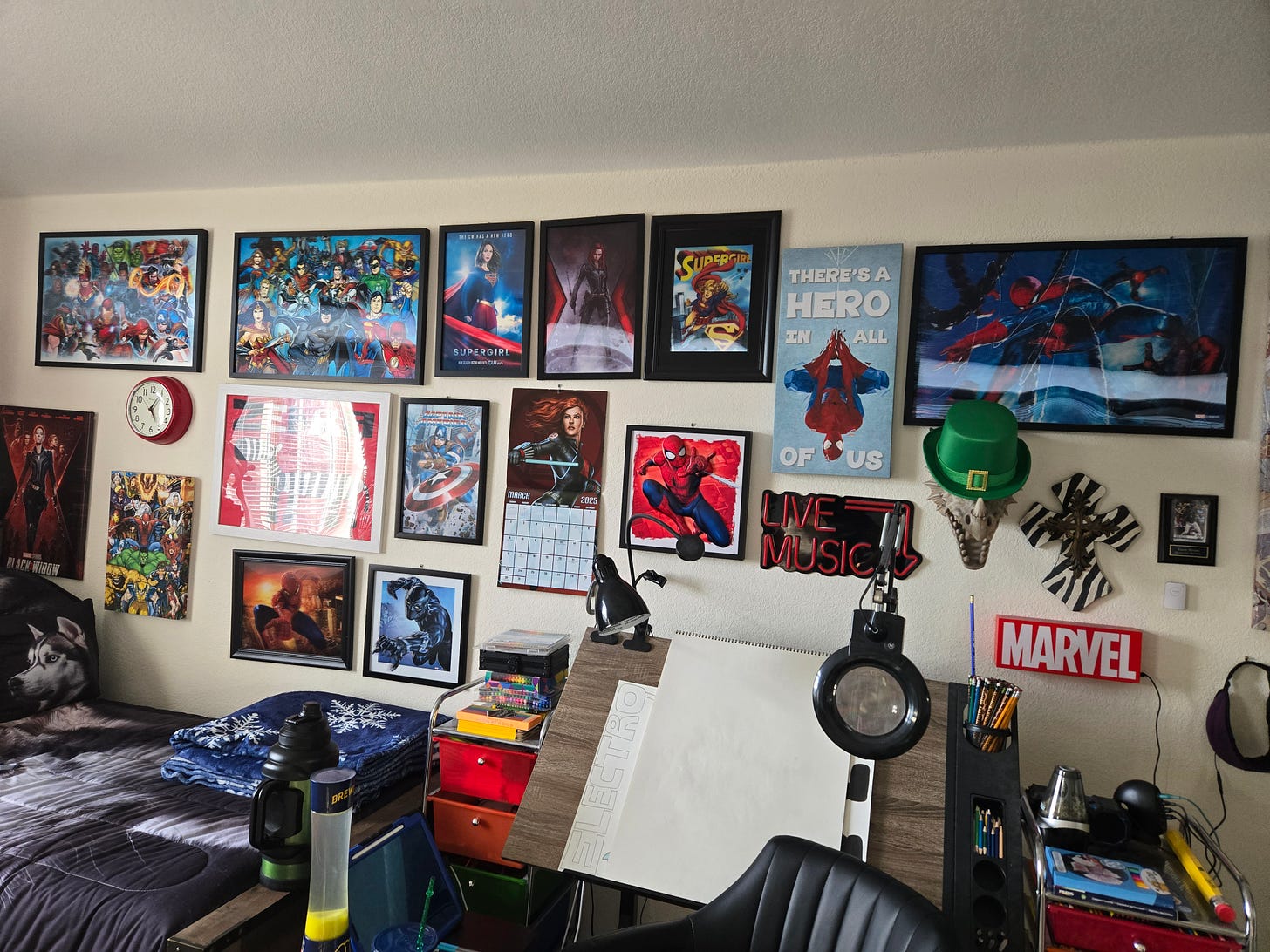You're beautiful. You're powerful. You're loved.
One family's journey toward disability acceptance
“Just a girl who loves her jumping spiders.”
That’s how 29-year-old Alex Garza describes herself.
Alex, who is autistic and cognitively disabled, got interested in jumping spiders nearly two years ago when she came across an Instagram video of the social media-popular arachnids and “saw how cute they are.”
She and her mom, Sandra Lomeli, bought Alex’s first jumping spider, Blackberry. And, during a recent visit to her home, Alex introduced me to several more — including Strawberry, Blueberry, and Mango — and told me about her business idea to sell baby spiders.
Alex is clearly a girl who loves her jumping spiders. But our conversation quickly revealed that she’s not JUST that. Alex told me about her second business idea — selling the “fluffy cupcakes” and other treats she currently bakes for family, friends, and coworkers. She told me about her weekly Bingo nights through Easterseals. She talked about playing Cornhole with a friend through Special Olympics. When Sandra told me about the weekly hikes she takes with her kids, Alex confirmed that she enjoys the family time, but that she sometimes tells her mom she has to stay home to “babysit my babies” (spiders). She recited a few lines from her role in a recent play she performed with the United Way’s Adaptive Community Approach Program. And she mentioned that she recently started Taekwondo lessons; she said, “it’s just like boxing” (something she’s also done).
A talkative extrovert and a quiet artist
While Alex told me who she is, her 31 year-old brother, Rich, who is also autistic and cognitively disabled, showed me.
A visit to Rich’s room, and adjacent TV room, reveal a carefully curated gallery of superhero drawings, posters, figures, props, toys, and books. Rich is interested in both Marvel and DC, he made sure to clarify, when I, a Marvel fangirl, pointed out a few of my favorites. Several of the artworks on the wall are his own, as Sandra and Alex both told me Rich is the artist in the family. Rich confirmed that “art is one of my favorite things.”
The centerpiece of Rich’s room is a drawing desk with plenty of lighting, a large drawing pad, and hundreds of colored pencils. He also creates art through Islands of Brilliance, a Milwaukee organization (where Sandra also serves as the financial and operations specialist) that pairs neurodivergent artists with mentors to learn skills to empower them to create art based on their interests.
“Rich has been in the IOB program for about eight years. At the time we started with Islands, he was very limited verbally,” Sandra said. “It was them and his acceptance at school (Shepherds College, a postsecondary program for people with disabilities, where Rich achieved horticulture and IT certifications) that really helped expand his vocabulary and build the confidence to socialize.”
Alex and Rich both have support care workers who help them out with some of their activities a few times each week; the services they receive from those workers further reflect the siblings’ different personalities. Sandra explained that Rich’s support care worker does quieter, one-on-one activities with him, things like walking on trails and visiting museums. On the other hand, Alex’s support care worker provides her with weekend transportation to some of her many social activities.
“Alex needs someone to get her to where she needs to go, and to be her best buddy for the day,” Sandra explained.
Propelled into advocacy mode
Sandra — who often describes herself as a mama bear — has been advocating for her kids their whole lives. And she recognizes a pattern in her work. “To be honest, it seems to usually be a crisis that propels us into advocacy,” Sandra said.
Keep reading with a 7-day free trial
Subscribe to Learning from their Stories to keep reading this post and get 7 days of free access to the full post archives.






